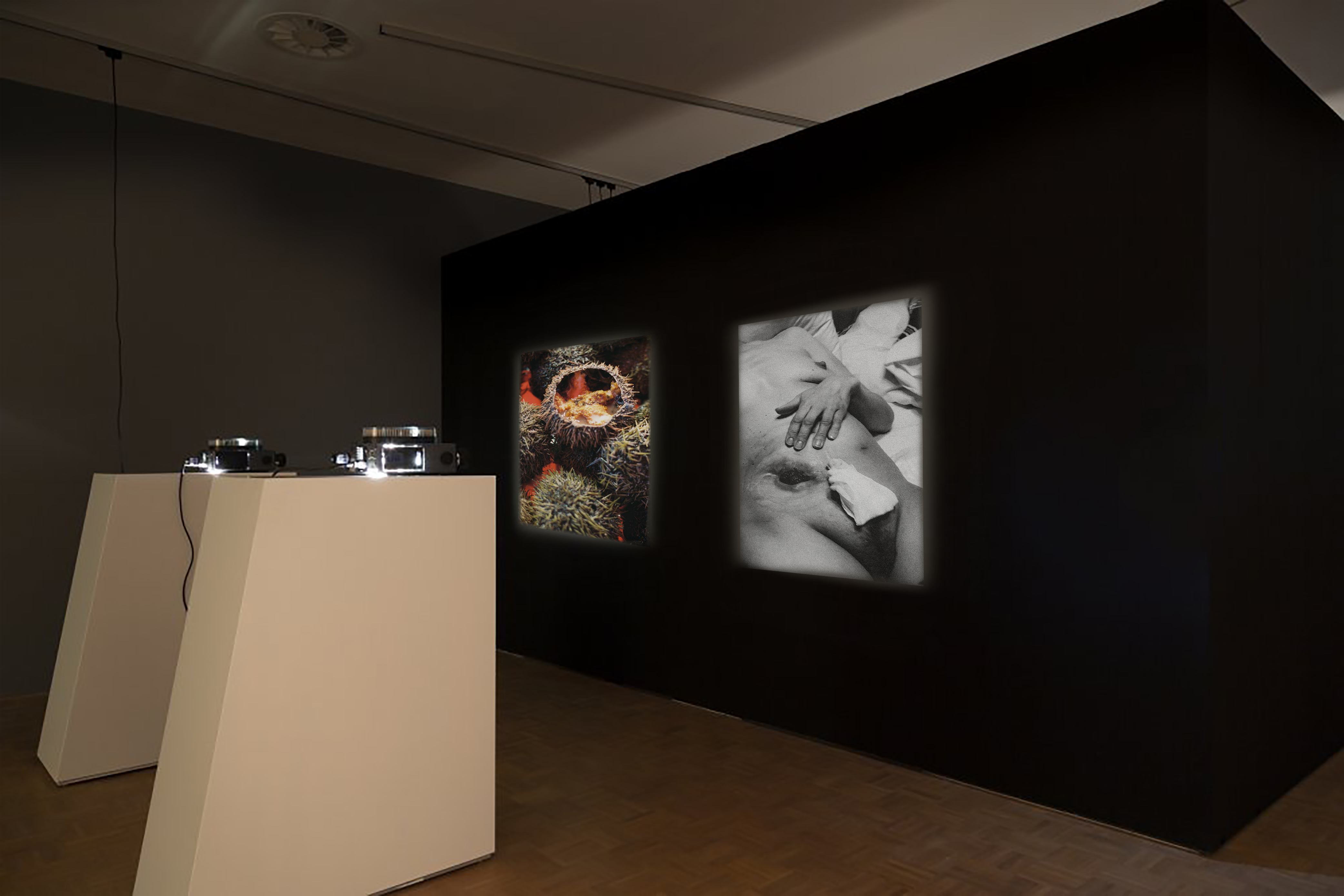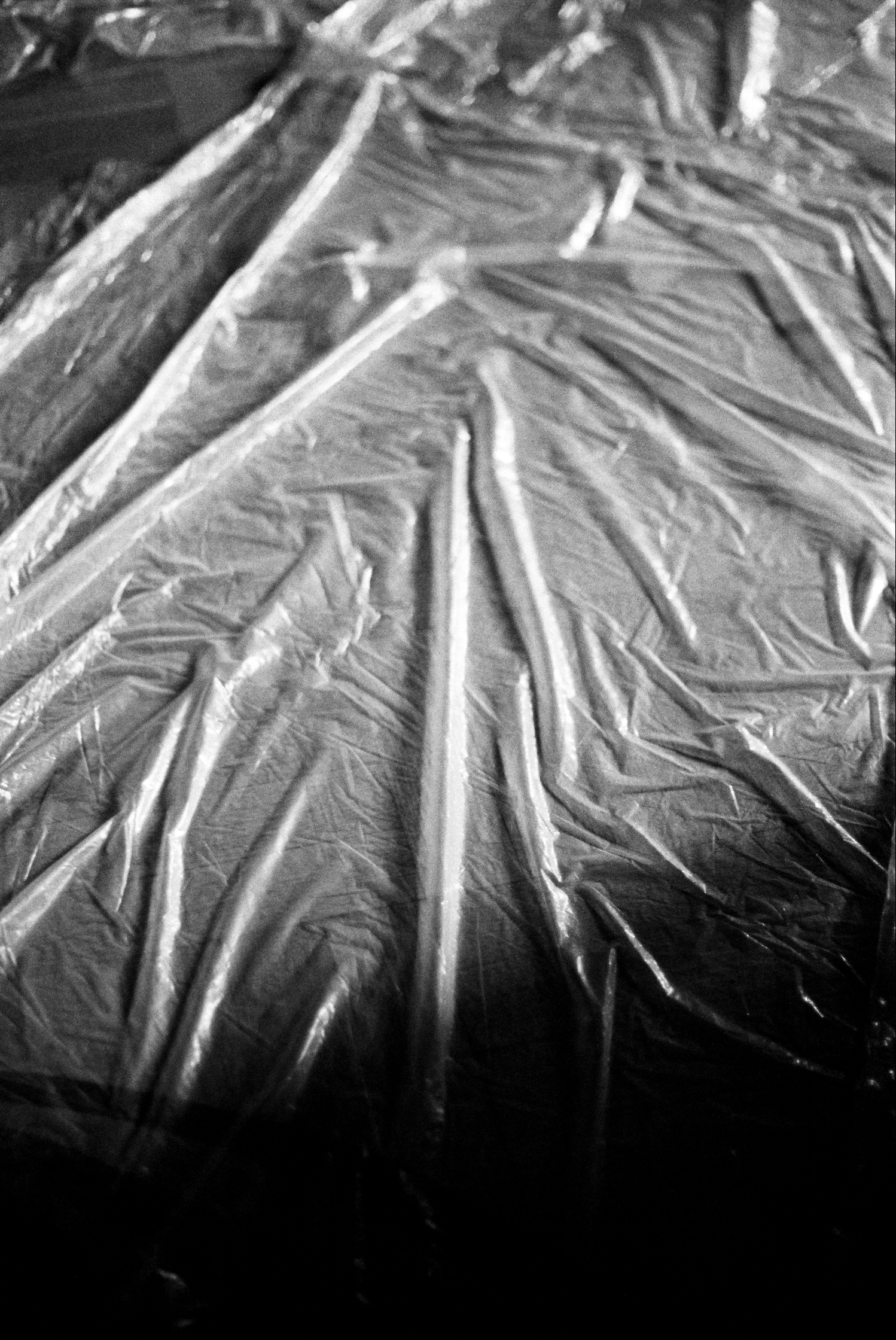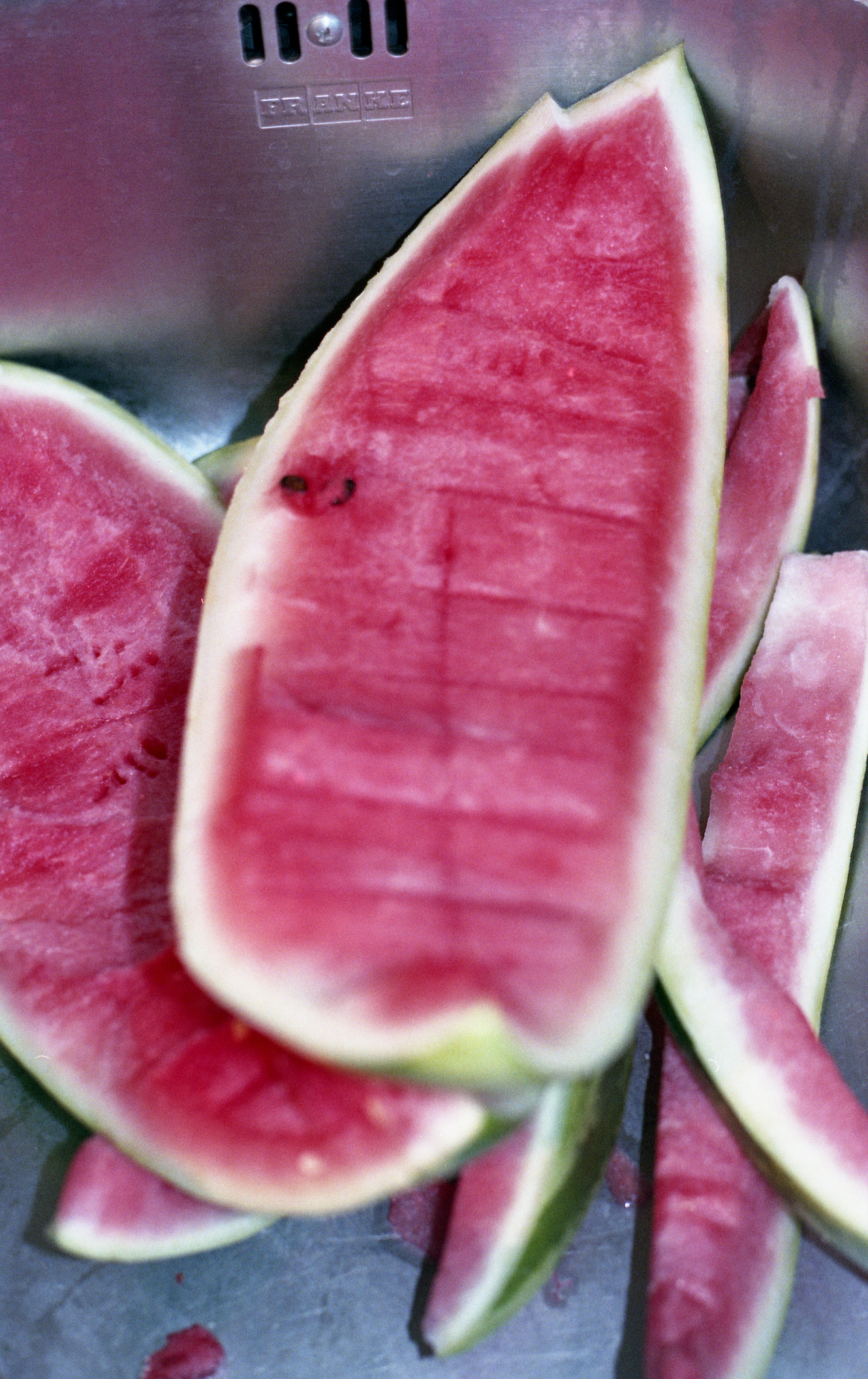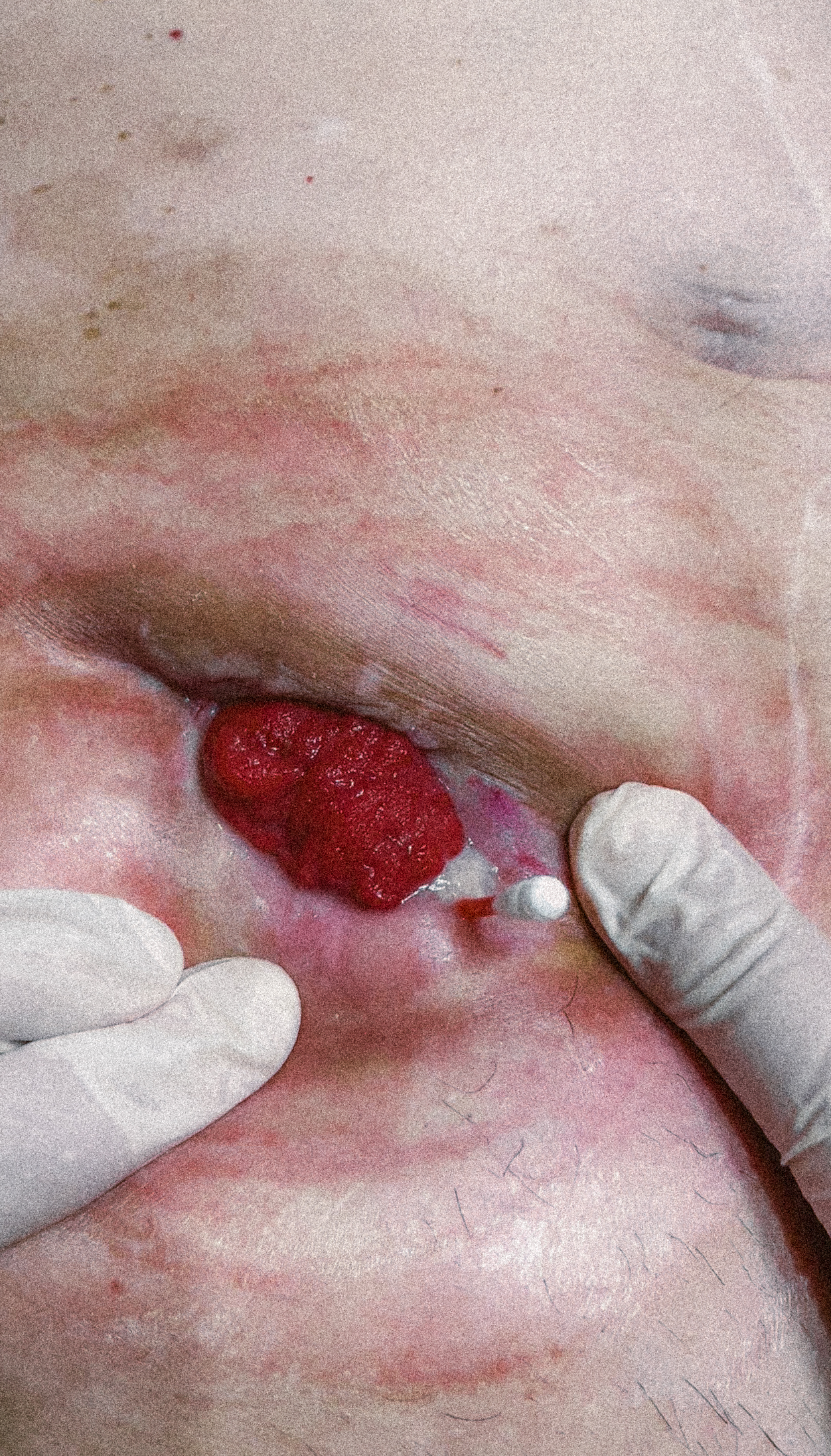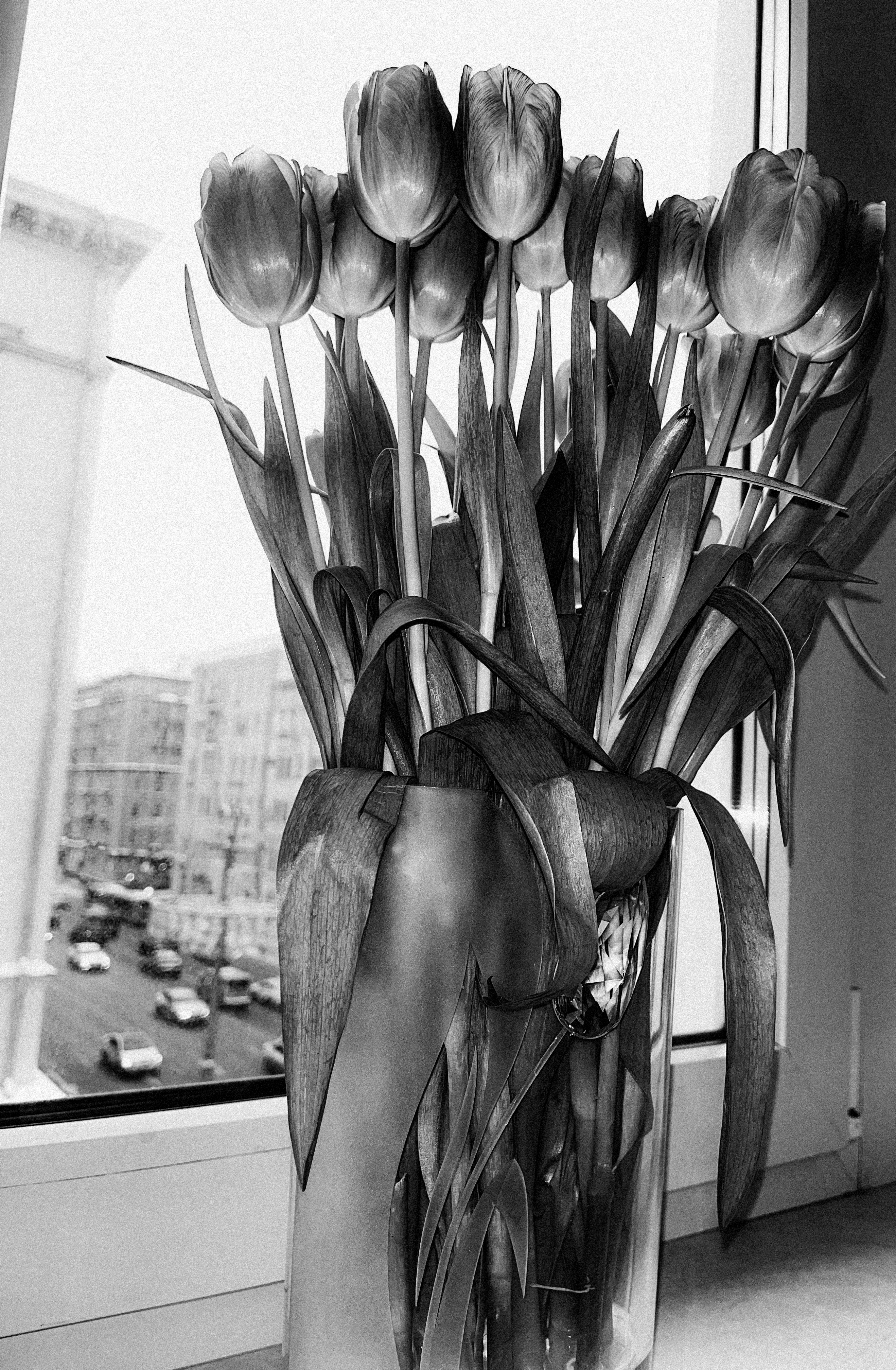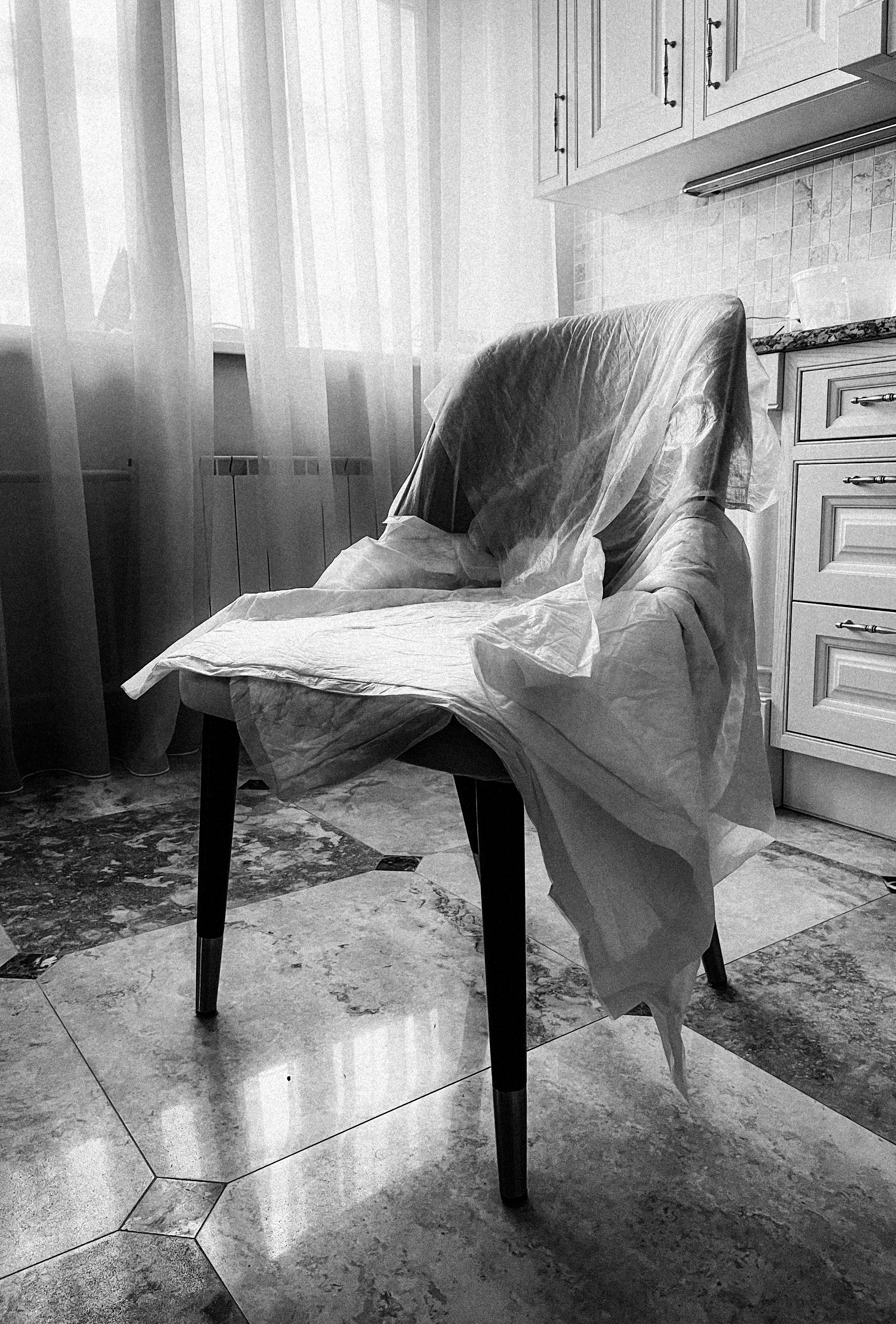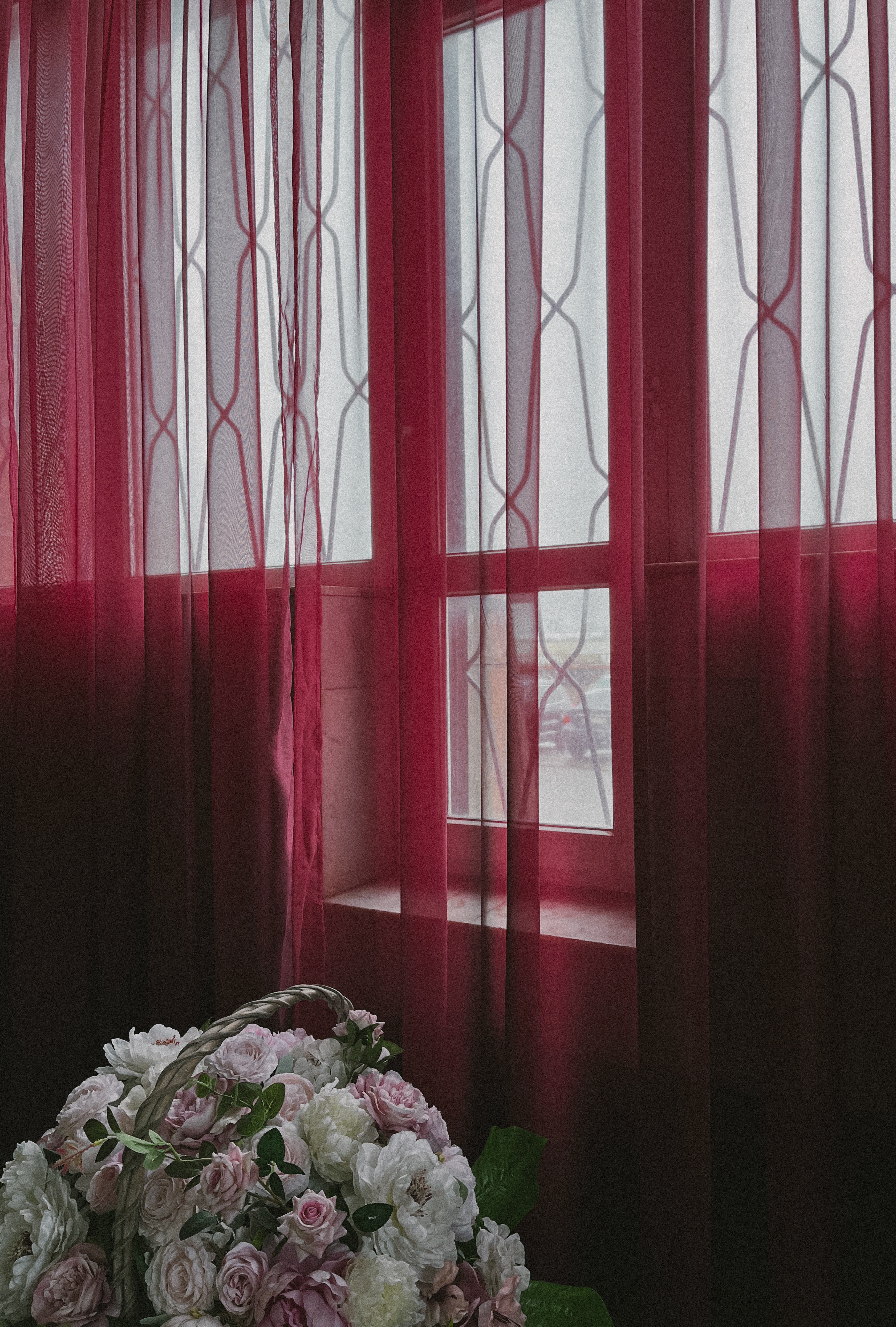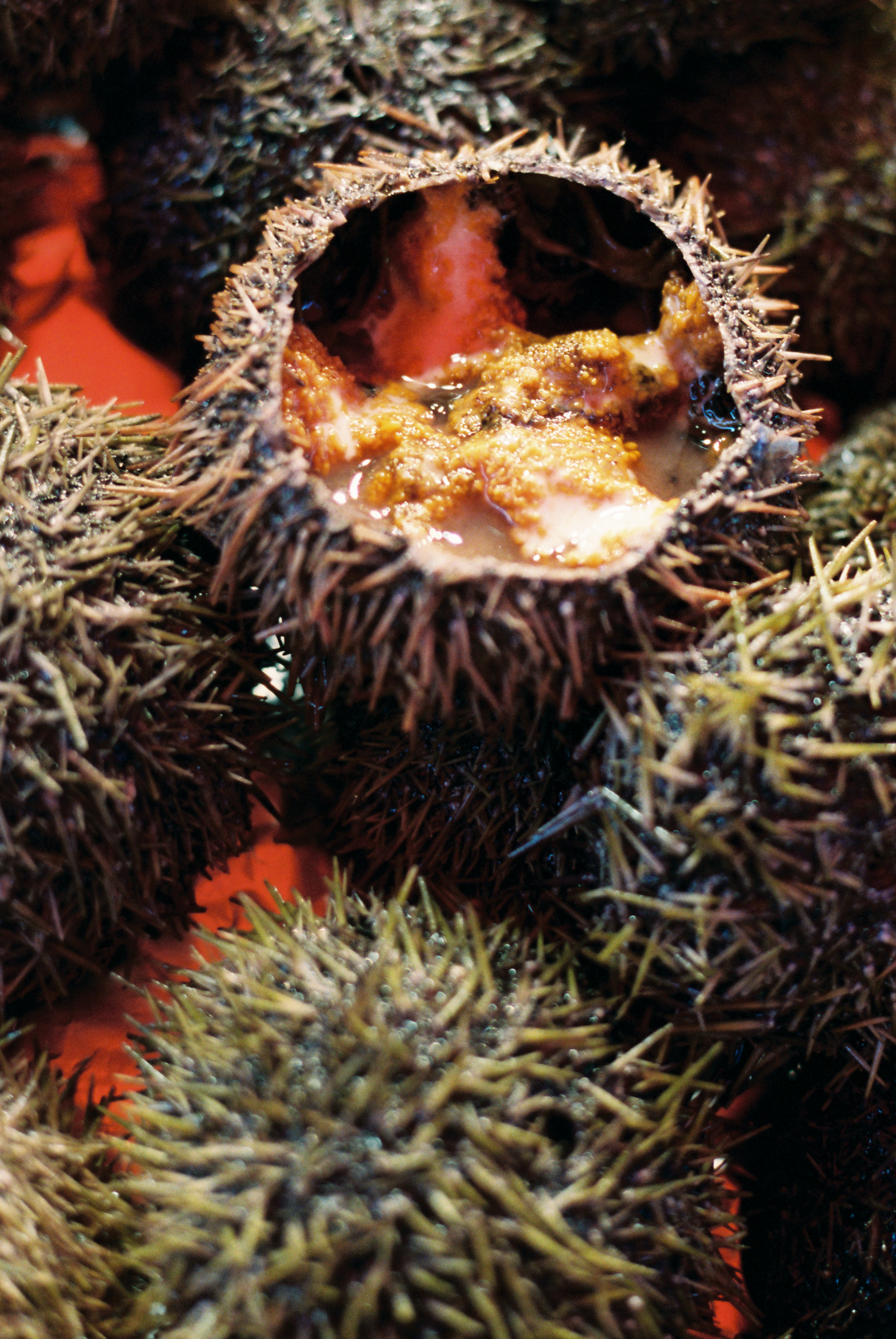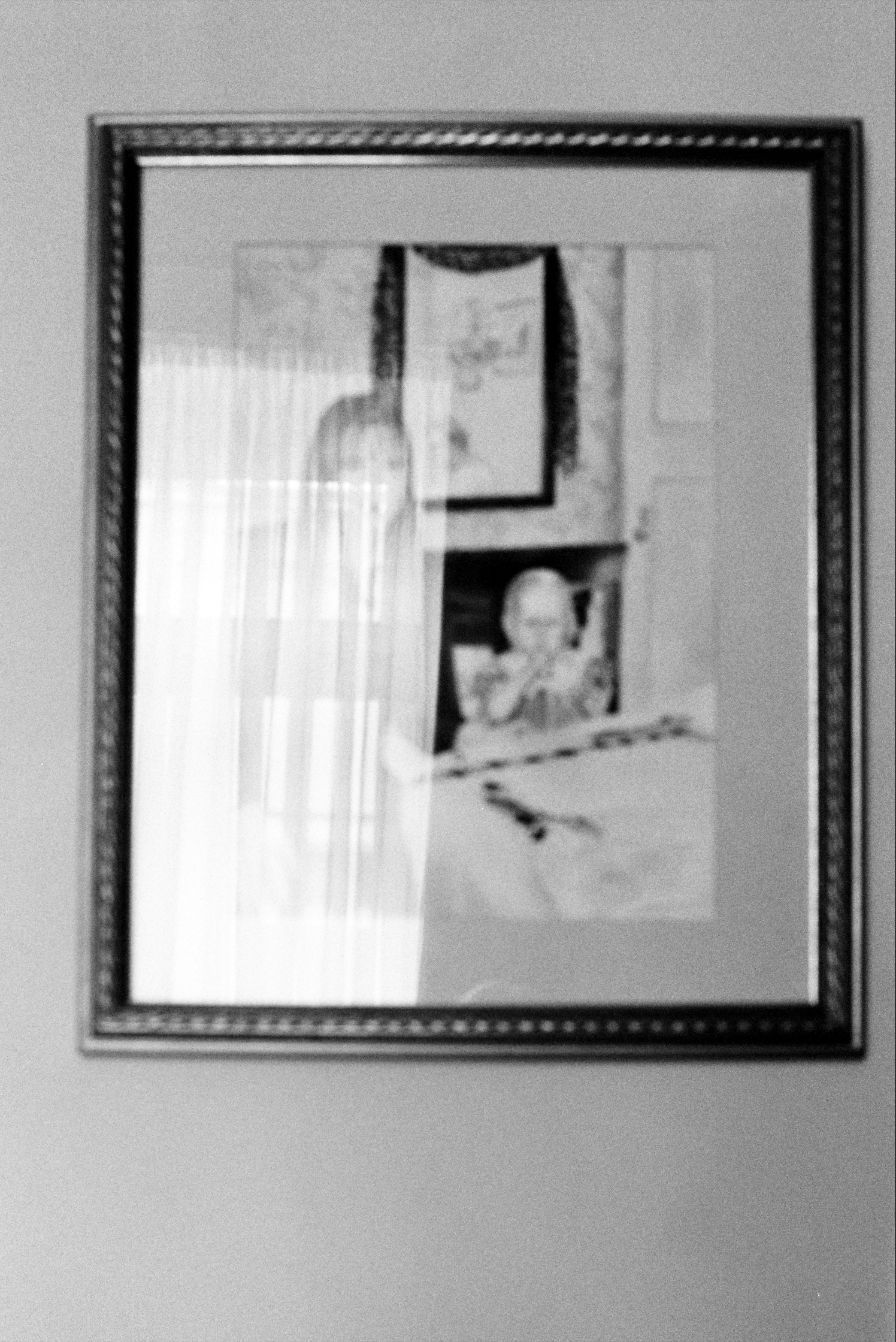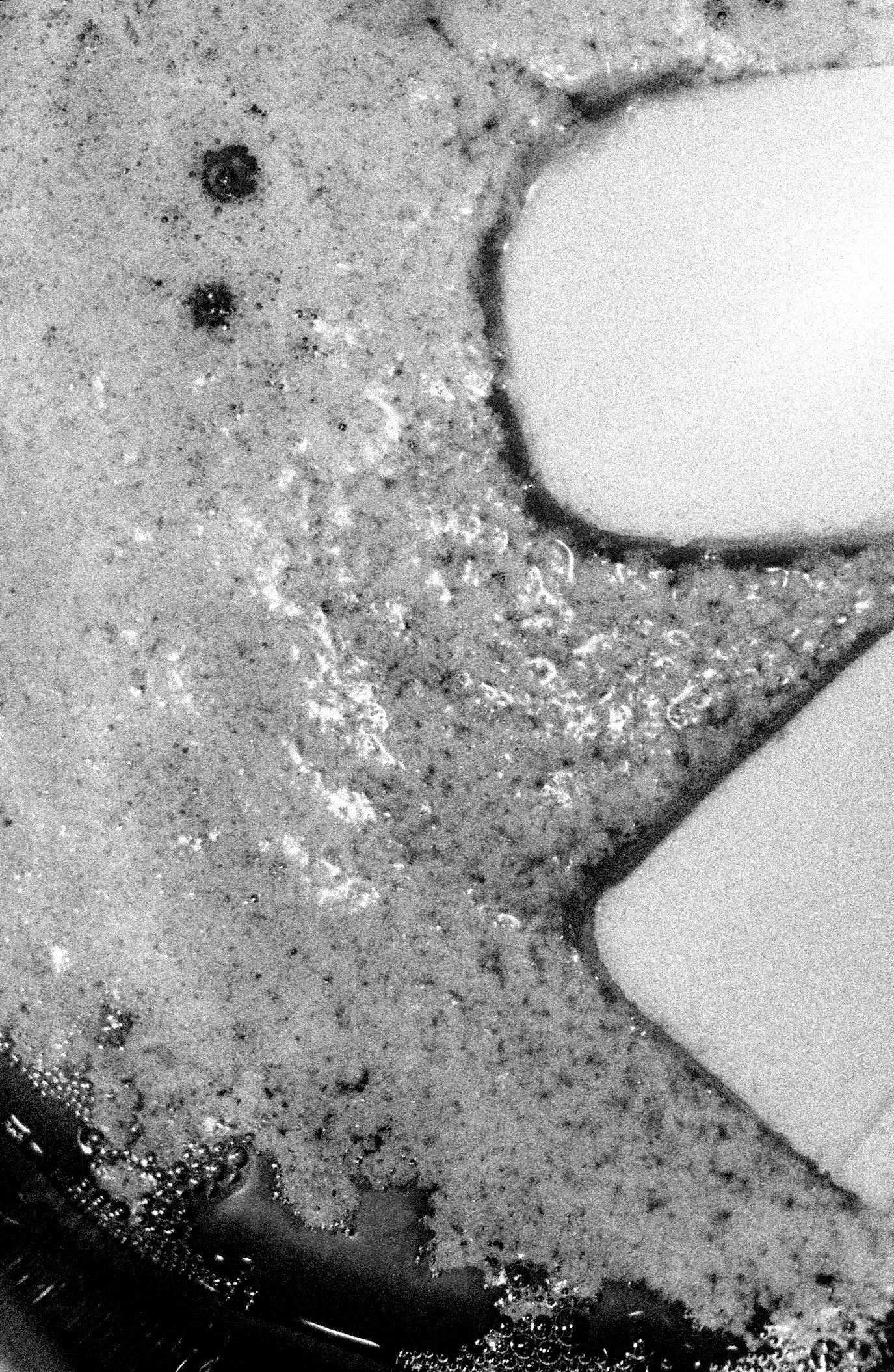La Traversée
2023
"La Traversée" combines several series of photographs, texts, and sound recordings created a year ago when the artist moved back to Moscow to take care of her mother, who was dying of cancer. This archive is like a chronicle of that time combining various fragments of that reality: photos of her mother, ravaged by illness, shots of the apartment, depicting the domestic space, recorded conversations with loved ones, and personal notes by the author. Thus the documentation reflects not only the physiological changes observed in the dying body, but also the internal changes in the artist. With time, Ekaterina is no longer frightened by the sight of the dying body and being faced with human mortality; an emotional experience transforms into artistic observation. This transition, from fear and disgust to contemplation and the search for beauty in terrible things, is reflected in the second part of the project: a series of photographs that capture everyday elements in macro closeups: flowers, food, domestic objects, etc.
Zooming in, the artist brings the image to the threshold of abstraction. In the photographs, certain things appear to be familiar, yet are not immediately recognizable. Close up, scales, networks of vessels, veins, gills and tentacles, and flowers and fodo scraps appear as frightening and repulsive as our internal organs. The artist compares these two seemingly unequal series in terms of the depth of experience but at the same time discovers an aesthetic similarity between them. Beauty and ugliness exist only within the paradigm of our perception, each concealing the other like the backside of one coin.
The installation presented for the Prix Dauphine pour l'art contemporain in June 2023 presents the photographs on two asynchronized slide projectors. In silence, interrupted only by the sound of changing frames, the images mingle together on the wall, offering the viewer this duality and blurring the boundary between the beautiful and the ugly.
Next to the projections, a headset transmits an audio recording of Ekaterina's grandmother's monologue, recorded a few minutes after her mother's death. For ten minutes, the grandmother lets her stream of consciousness flow in a calm and melancholy rhythm. The meditative sound of her voice, combined with the noise of the city floating in from the open window, creates a kind of trance, translating the still sadness of that moment and turning us to a state of contemplation that lies as the heart of this project.
Sonia Kovaleva
